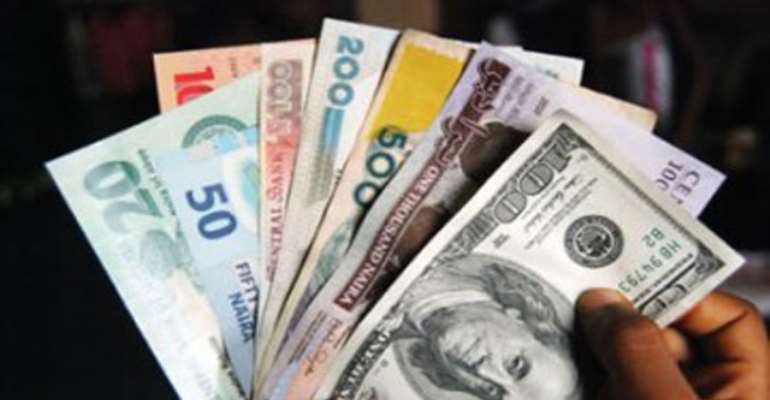As the Naira depreciates in value… – Thisday

There is urgent need to diversify the economy In recent weeks, the fortunes of the national currency, the Naira have taken a sharp downward spiral despite all the efforts by the Central Bank of Nigeria (CBN) to shore up its value. This development, as well as falling oil prices and the massive production losses at various oil terminals, have led to a drop in the country's revenue. Since Nigeria relies on crude oil exports for more than 80 per cent of its revenue and oil prices have fallen to as low as $45 per barrel with no bottom to the decline, all the signals point to the inevitability of some dangers ahead for the Nigerian economy. To worsen an already bad situation, JP Morgan said last Friday that it would assess Nigeria’s suitability to remain in a key emerging currency bond index because of lack of liquidity in the country’s forex and bond markets. The bank said it had placed Nigeria on a negative index watch and would assess its place on the Government Bond Index (GBI-EM) over the next three to five months. “If we are unable to verify sufficient liquidity in Nigeria’s spot FX and local treasury bond market … it will trigger a review … for removal,” JP Morgan said.
We recall that in October last year, in addition to a 10-kobo margin limit imposed on intervention dollars, the CBN banned banks from selling the currency to Bureaux de Change (BDCs). A month later, the CBN excluded importation of six items from official foreign exchange, saying it would no longer sell official forex for their importation. The Nigerian National Petroleum Corporation (NNPC) has also been enlisted in the efforts to stabilise the value of the national currency. But to date, all the efforts seem to have been to no avail. Although the CBN Governor, Mr. Godwin Emefiele, has continued to pledge the apex bank commitment and ability to defend the Naira, the current volatility as well as the persistent drop in the external reserves are both indicators that the managers of the economy must come to terms with the reality that the situation could actually get worse before it gets better.
Clearly, Nigeria's heavy import dependence explains the country's high forex outflow and the perennial weakness suffered by the Naira. The country's high import dependence also shows why the exchange rate is often the bellwether for Nigeria's economic health, and why there is a swift pass-through of exchange rate movements to inflation. About a third of Nigeria's forex outflows can easily be classified under leakages as they add little or nothing to the well-being of the people while the continuous fall in oil price compounds the situation.
The foregoing therefore shows the urgent need for the diversification of the economy to make it become productive and less dependent on rent. It is not enough to tinker with statistics in the name of rebasing the economy. Policy makers must truly put on their thinking caps on how to create jobs for young people so that we can become more competitive as a nation in an increasingly uncertain global environment. This is because as long as the Nigerian economy depends largely on imported goods and services, its growth will not be sustainable.
Also, the federal government has to take concerted efforts towards savings so as to effectively accumulate the country's foreign assets. Fiscal consolidation must be pursued in such a manner that government expenditure will be refocused on quality items that will unlock growth and job creation. Such quality investment should focus largely on infrastructure and human capital development. Above all, there is also need for more transparency in the management of the country's oil earnings. If we don't do all these needful things, and we continue to depend on rent from oil, the Naira will continue to be on a free fall and with it our economy.
